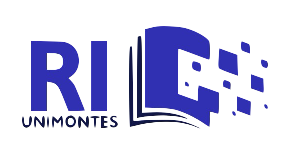Use este identificador para citar ou linkar para este item:
https://repositorio.unimontes.br/handle/1/529Registro completo de metadados
| Campo DC | Valor | Idioma |
|---|---|---|
| dc.contributor.advisor | Martins, Antônio Carlos Soares | - |
| dc.contributor.author | Cruz, Tatiane Gonçalves | - |
| dc.date.accessioned | 2021-11-09T13:52:22Z | - |
| dc.date.issued | 2017-05-03 | - |
| dc.identifier.uri | https://repositorio.unimontes.br/handle/1/529 | - |
| dc.description.abstract | This research aims to analyze the contributions of gamification in the development of reading ability. Based on the difficulties diagnosed in two classes of 9th grade elementary school students from a state school in Montes Claros / MG, as well as elaborate a proposal of intervention using elements of gamification for the development of reading of texts of the genres Tale and chronic. The rationale for this research is that students have difficulties in critically understanding the content of the texts they read and it is the role of the school, especially in Portuguese language classes, to try to overcome or at least minimize the identified difficulties. Methodologically, we opted for a qualitative research, which will consist of the study and collection of information regarding reading and interpretation of texts using elements of gamification. The dialectic relation between research and action is strongly present in this work, since its first objective is the transformation of reality. This research is based on the presuppositions of the action research of (THIOLLENT, 1995). The analysis that is proposed uses the assumptions of Solé (2009), Koch (2010) and Kleiman (1995), on the process of reading in a socio-interactionist vision. Also in Martins (1996), on the stages of the reading process. In the contributions of Silva (2014), on critical reading and reading formation; In the notes of Novais (2008) on digital culture; And those of Kapp (2012) and Zichermann (2011) on gamification. In order to prepare the Intervention Educational Proposal, the action plan is anchored in the guidelines established by the National Curricular Parameters (1998) and the Common Basic Content (2015), as well as in the reference frameworks of the National System for the Evaluation of Basic Education ( 2013, 2014). The results of this investigative process show that in the intervention period, students gradually began to prioritize not only verbal elements during reading, but also began to consider the other elements that make up the text, thus making the attribution process More detailed, judicious and more dynamic. In this sense, we emphasize that the work with gamification has shown a way to make students readers more motivated, interacted and critical. | pt_BR |
| dc.language.iso | pt_BR | pt_BR |
| dc.subject | Leitura | pt_BR |
| dc.subject | Gamificação | pt_BR |
| dc.subject | Língua Portuguesa - Ensino | pt_BR |
| dc.title | Gamificação: contribuições para o desenvolvimento de habilidade de leitura | pt_BR |
| dc.type | Dissertacao | pt_BR |
| dc.subject.area | Linguistica, Letras e Artes | pt_BR |
| dc.subject.subarea | Linguistica | pt_BR |
| dc.description.resumo | Esta pesquisa tem como objetivo principal analisar as contribuições da gamificação no desenvolvimento da habilidade de leitura, a partir das dificuldades diagnosticadas em duas turmas de alunos do 9º ano do Ensino Fundamental, em escola estadual de Montes Claros/MG, bem como elaborar uma proposta de intervenção, utilizando elementos da gamificação para o desenvolvimento da leitura de textos dos gêneros conto e crônica. A justificativa para esta pesquisa prende-se ao fato de que os alunos têm dificuldades em entender, criticamente, o conteúdo dos textos que leem e é papel da escola, sobretudo nas aulas de Língua Portuguesa, tentar superar ou, ao menos, minimizar as dificuldades identificadas. Metodologicamente, optou-se por uma pesquisa de cunho qualitativo, que consistirá no estudo e levantamento de informações a respeito de práticas de leitura e interpretação de textos, com o uso de elementos da gamificação. A relação dialética entre pesquisa e ação está fortemente presente neste trabalho, uma vez que tem, como objetivo primeiro, a transformação da realidade. Esta pesquisa fundamenta-se nos pressupostos da pesquisa-ação de Thiollent (1995). A análise proposta recorre aos pressupostos de Solé (2009), Koch (2010) e Kleiman (1995), sobre o processo de leitura numa visão sociointeracionista; em Martins (1996), quanto às etapas do processo de leitura; nas contribuições de Silva (2014), sobre leitura crítica e formação leitora; nos apontamentos de Novais (2008) sobre cultura digital e nos de Kapp (2012) e Zichermann (2011), relativos à gamificação. Para a elaboração da Proposta Educacional de Intervenção, o plano de ação ancora-se nas diretrizes estabelecidas pelos Parâmetros Curriculares Nacionais (1998) e pelo Conteúdo Básico Comum (2015), bem como nas matrizes de referência do Sistema Nacional de Avaliação da Educação Básica (2013, 2014). Os resultados deste processo investigativo mostram que, no período da intervenção, de maneira gradual, os alunos passaram a priorizar não apenas os elementos verbais durante a leitura, mas também vieram a considerar os demais elementos que compõem o texto, tornando, assim, o processo de atribuição de sentido mais detalhado, criterioso e dinâmico. Nesse sentido, destacamos que o trabalho com a gamificação mostrou-se um caminho para transformar os alunos em leitores mais motivados, interagidos e críticos. | pt_BR |
| dc.embargo.terms | aberto | pt_BR |
| dc.embargo.lift | 2021-11-10T13:52:22Z | - |
| dc.contributor.referee | Ribeiro, Maria Clara Maciel de Araújo | - |
| dc.contributor.referee | Quintino, Juliana Mendes Campos | - |
| Aparece nas coleções: | Dissertações | |
Arquivos associados a este item:
| Arquivo | Descrição | Tamanho | Formato | |
|---|---|---|---|---|
| TATIANE GONÇALVES CRUZ.pdf | 1,73 MB | Adobe PDF | Visualizar/Abrir |
Os itens no repositório estão protegidos por copyright, com todos os direitos reservados, salvo quando é indicado o contrário.
